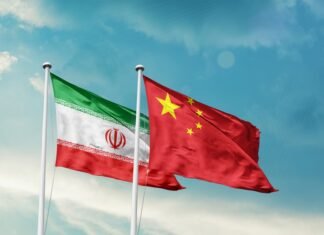Scott Bessent: Growing Pressure on Russia
In recent remarks, Scott Bessent, the U.S. Secretary of the Treasury, has made it clear that the United States is poised to intensify its pressure on Russia. His statement underscores the ongoing tensions between the two nations, particularly in light of recent geopolitical developments and ongoing conflicts that have drawn international attention.
Bessent’s comments come at a time when the U.S. and its allies are considering a range of strategies to respond to Russia’s actions on the global stage. The aim is to facilitate a more stable international environment while holding Russia accountable for actions that are perceived as aggressive or destabilizing.
The context of these remarks is essential. The conflict in Ukraine, ongoing military interventions, and alleged interference in various democracies have all contributed to a heightened sense of urgency among U.S. officials. Many in the international community are calling for a unified front against territorial aggression and violations of human rights, which have become more pronounced in recent years.
Bessent indicates that there are several tools available to the U.S. government to increase this pressure. Economic sanctions have been a cornerstone of U.S. foreign policy, especially regarding Russia. These sanctions target specific sectors of the Russian economy and aim to decrease its financial capabilities. By imposing sanctions on key individuals and entities, the U.S. seeks to disrupt operations that support aggressive policies and military engagements.
In addition to sanctions, diplomatic avenues are also crucial in this multifaceted approach. The United States aims to collaborate with its European allies and other nations to create a robust coalition against actions that violate international norms. This includes advocating for a comprehensive dialogue aimed at restoring stability in regions affected by Russian activities.
Another aspect of Bessent’s strategy involves leveraging international institutions and forums to keep the pressure on Russia. Engaging with organizations like NATO, the European Union, and the United Nations is vital to foster a cohesive response that addresses Russia’s actions collectively. This creates a platform for collective security, further isolating Russia diplomatically and economically.
The message underlying Bessent’s comments is clear: the U.S. is not just a passive observer in global affairs but an active participant committed to promoting a rules-based international order. This stance reflects a broader U.S. strategy aimed at countering authoritarianism and defending democratic principles.
Furthermore, Bessent emphasizes that these efforts are not merely punitive; they are intended to encourage a change in behavior from Russia. The U.S. envisions a future where diplomatic solutions replace military confrontations, and where peaceful negotiations pave the path toward resolution. However, achieving this requires a sustained commitment and resilience in the face of potential backlash from Russia.
As the situation continues to evolve, the international community watches closely. The stakes are high, and the choices made in the coming months will not only affect U.S.-Russia relations but also have far-reaching implications for global stability. Bessent’s committed approach signifies that the U.S. is prepared to take a stand, emphasizing the importance of maintaining a strong position against any threats to peace and security.
In conclusion, Scott Bessent’s declaration of readiness to increase pressure on Russia marks a pivotal moment in U.S. foreign policy. Through sanctions, diplomatic efforts, and international collaboration, the United States aims to foster a global environment that discourages aggressive actions and promotes peace. The path forward is complex, but a united front offers the best hope for stability in the face of rising global tensions.






